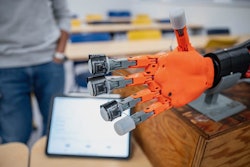
Alamy
According to a recent New Scientist article, engineers at Indiana University Bloomington have developed a biocomputing system named "Brainoware" that consists of living brain cells linked to a computer. The brain organoids, which are small lumps of nerve cells, were trained to perform basic speech recognition by identifying the voice of one individual from a set of 240 audio clips. The system demonstrated an adaptive learning process, improving accuracy from 30-40% to 70-80% after two days of training without feedback.






















